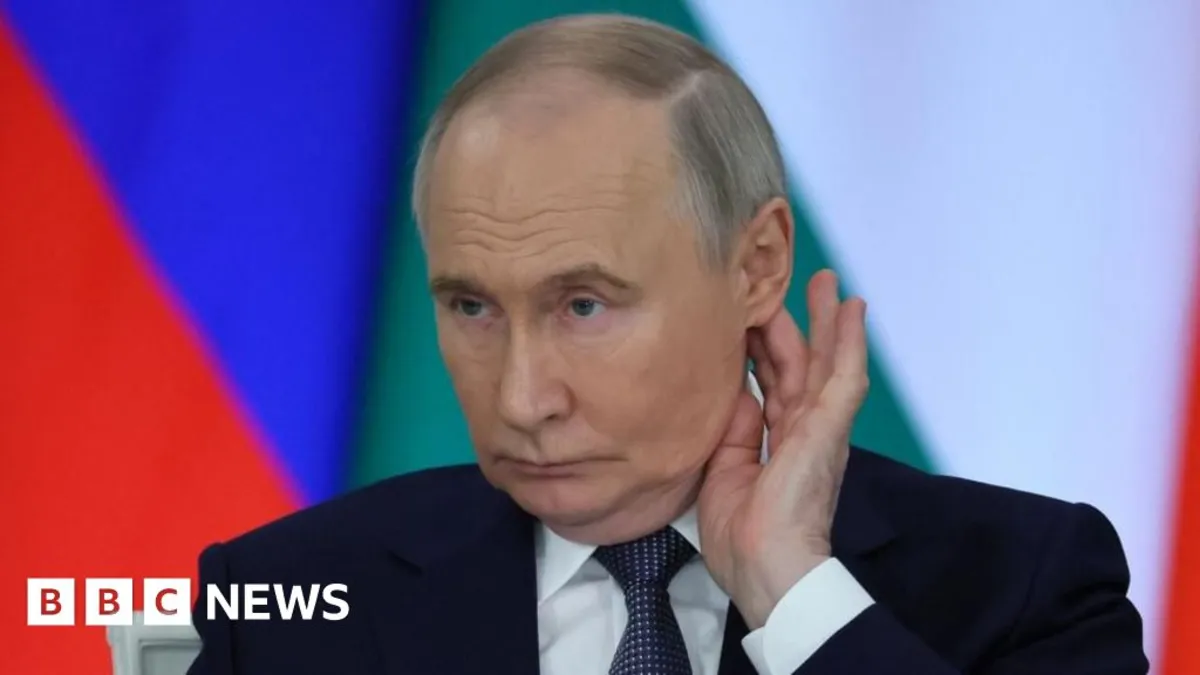
The United Kingdom and France have jointly called on Russia’s President Vladimir Putin to demonstrate his willingness to engage in a genuine peace deal with Ukraine. This appeal comes ahead of a significant phone conversation scheduled between Putin and former US President Donald Trump on Tuesday. French President Emmanuel Macron commended Ukrainian President Volodymyr Zelensky for his bravery in agreeing to a ceasefire proposal and challenged Russia to reciprocate, stating that “enough deaths, enough lives destroyed, enough destruction” must come to an end. Macron emphasized the urgent need for the guns to fall silent in a post on social media platform X.
In the UK, Foreign Secretary David Lammy echoed Macron's sentiments, urging Putin to agree to a full and unconditional ceasefire immediately. Speaking to Members of Parliament, Lammy expressed skepticism regarding Putin’s commitment to a peace deal, stating, “I have seen no sign that Putin is serious about a peace deal.” He further warned that the UK and its allies possess various strategies to compel Russia to engage in serious negotiations.
As the Trump-Putin talks approach, the White House has adopted a more optimistic tone, suggesting that peace in Ukraine may be closer than ever before. White House Press Secretary Karoline Leavitt informed reporters on Monday that Trump is intent on securing a peace deal. She highlighted that discussions would likely focus on critical issues, including a power plant located on the border of Russia and Ukraine, which is anticipated to be addressed during Trump’s call with Putin.
The power plant in question is the Zaporizhzhia nuclear power plant, recognized as the largest in Europe. This facility has been under the occupation of Russian forces since March 2022, raising ongoing concerns about the potential for a nuclear accident amid continued fighting in the region. When asked about potential concessions in the ceasefire negotiations, Trump noted, “We’ll be talking about land. We’ll be talking about power plants... We’re already discussing how to divide up certain assets.”
In response to inquiries regarding the content of the upcoming discussions, Kremlin spokesperson Dmitry Peskov maintained a status quo, stating, “We never do that.” Although Putin has previously expressed support for a ceasefire, he has also outlined a series of conditions that must be met for peace to be achieved. Notably, one contentious area is Russia’s Western Kursk region, where Ukraine initiated a military incursion last August, capturing some territory. Recently, Russia has made efforts to reclaim this area, with Putin asserting that it is now fully under Russian control.
Putin has raised several concerns regarding how a ceasefire could be effectively monitored and enforced along the eastern frontline, explicitly stating that he would not accept NATO troops on the territory. The peace proposal currently under consideration was discussed by Ukrainian and American representatives in Saudi Arabia last week. Following extensive negotiations, they proposed a 30-day ceasefire, which Ukraine has indicated it is prepared to accept.
In a show of solidarity, President Macron and newly elected Canadian Prime Minister Mark Carney met on Tuesday, reaffirming their nations’ unwavering support for Ukraine and emphasizing the necessity for clear commitments from Russia regarding the peace process.